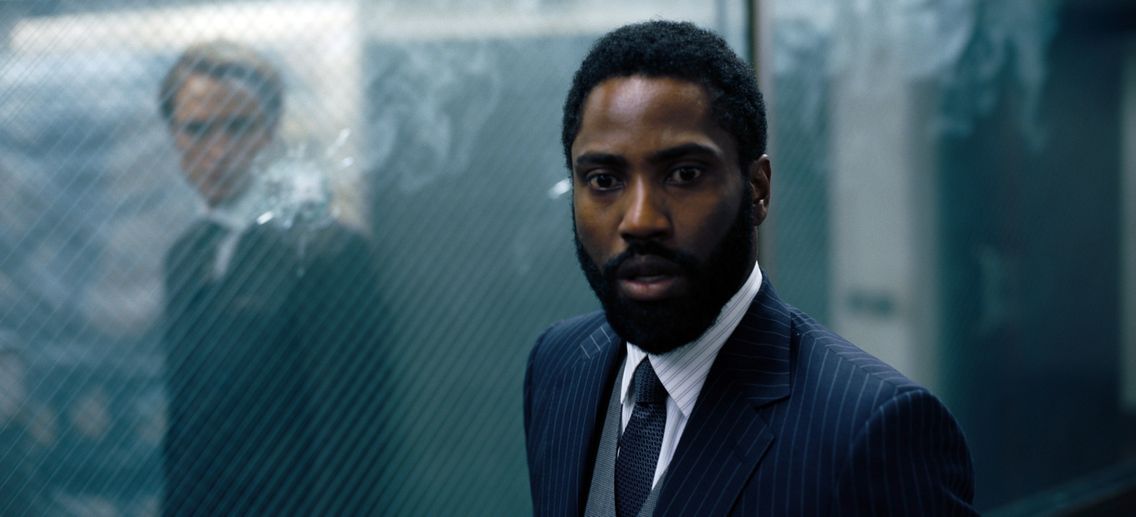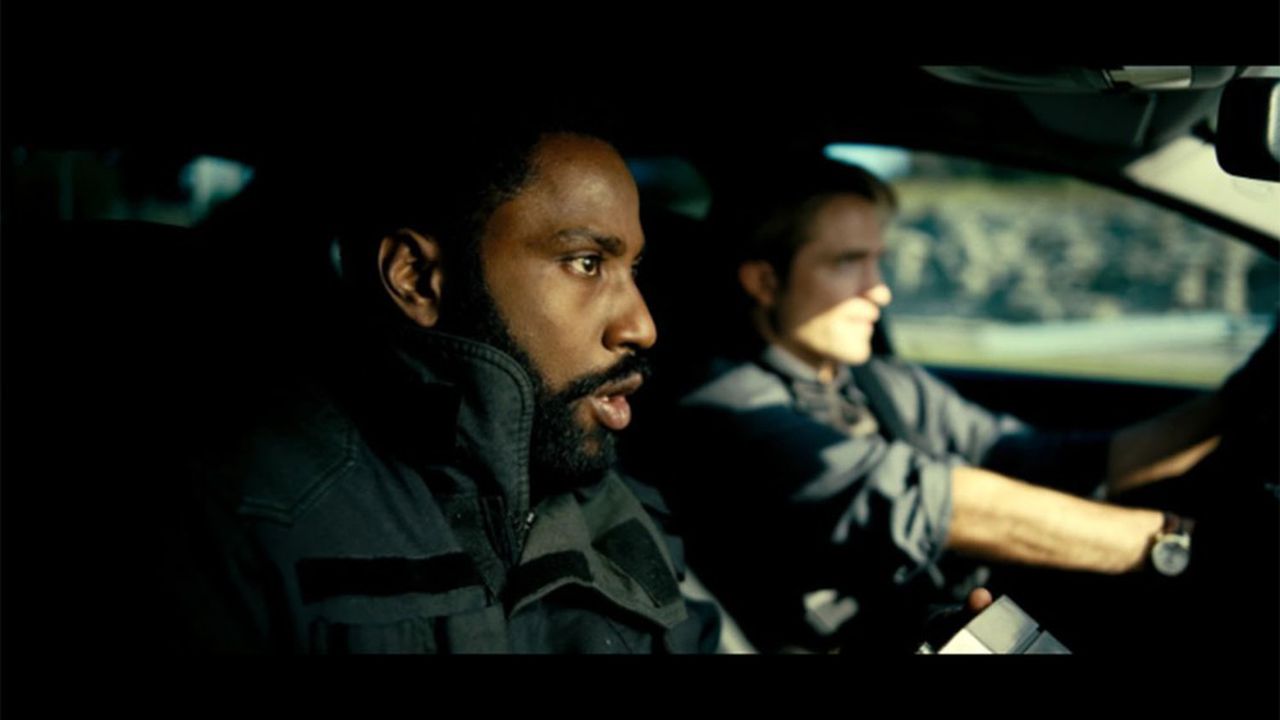It is certainly the most anticipated film of this post-confinement. Tenet, Christopher Nolan's new film has just been released. As often, it is an ambitious, spectacular, and innovative proposal that will make noise and will certainly once again put everyone in agreement. Yet, even if the film is a solid offering, there is still some reluctance to utter. Criticism! This time, the filmmaker decides to let go of his favorite actors (apart from Michael Caine) to surround himself with John David Washington, Robert Pattinson and Elizabeth Debicki. Note also the presence of the actor / director Kenneth Branagh, already a member of the cast of the excellent Dunkirk. There's a lot to say about Tenet. And even summarizing it is a daunting task. Tenet tells the story of "the protagonist", a special agent who works to prevent World War III. But this time, the situation is not the same. Technology from the future makes it possible to create an alternative timeline that goes back in time. With this invention, objects and bodies can go back in time.
Tenet: the film that plays with codes
With Tenet, Christopher Nolan has put the package. As with each of his works, it is an ultra-ambitious proposal, which is based on a new concept. As often, it is a spectacular, intense, sometimes tiring work too. A film that goes to the end of things, without concession and totally radical. With Tenet, Christopher Nolan wants to impose a new story and an innovative concept. He wants to use time travel in an experimental way, with a perfectly original approach. Tenet is a work that mixes genres. Christopher Nolan tries to offer his most varied film, mixing genres with some ease. The result is a spy film, with a background of fantasy, offering hallucinatory action scenes. It's like James Bond meeting Looper.  But from this mixture are cut certain weaknesses. Because once the element of surprise regarding the time concept has passed, the feature film turns out to be a relatively classic and even sometimes boring spy movie. Tenet is at times unnecessarily talkative. Christopher Nolan wants to create an investigation where the elements fit together, as he likes to do, and as he has already been able to do through his own filmography. Dunkirk was already experimenting with the thing, but without forcing the line. The different temporal readings were perfectly presented, here, they are more forced, supported, and sometimes, with a certain lack of tact. And if we put aside the fantasy element, Tenet is nothing more than a redundant Mission Impossible .
But from this mixture are cut certain weaknesses. Because once the element of surprise regarding the time concept has passed, the feature film turns out to be a relatively classic and even sometimes boring spy movie. Tenet is at times unnecessarily talkative. Christopher Nolan wants to create an investigation where the elements fit together, as he likes to do, and as he has already been able to do through his own filmography. Dunkirk was already experimenting with the thing, but without forcing the line. The different temporal readings were perfectly presented, here, they are more forced, supported, and sometimes, with a certain lack of tact. And if we put aside the fantasy element, Tenet is nothing more than a redundant Mission Impossible .
Christopher Nolan loses sight of his stakes
The filmmaker deliberately wanted to make a "mindfuck" film. He deliberately wanted to lose his assistance through hidden and rather vague scripted elements. Christopher Nolan wanted his audience to come out of the room with questions, doubts and a certain lack of understanding. And it is finally the rendering achieved, but not necessarily for the right reason. Yes, its overall story is brilliant. Managing to present temporal paradoxes with clarity, playing with space and timelines with disconcerting ease. On that, nothing to say. Nolan knows what to tell and how to do it. But where he fishes is that he seeks to over-complicate his history. As with Inception, the director wants to make his film more confusing. He complicates his work for no real reason, to create more mystery and artistic vagueness. Because ultimately, Tenet is a pretty simplistic loop story. But Nolan wants to make it complicated.  And sometimes, because of this process, Tenet is quite vain. Christopher Nolan ends up largely losing sight of his stakes. There is still a risk of a third world war, but overall we don't care. The concept of going back in time, which Nolan constantly puts at the center of his plot, overshadows the various issues of the story. By wanting to do too much, he loses sight of his subject, his plot and his outcome. To complicate things too much, he sometimes loses his viewer who drops out of the plot and its stakes. Who shoots whom? Who are the antagonists? What is their Machiavellian plan? Who is pulling the strings? Who is the hero? Questions that ultimately remain unanswered. It may be voluntary, but it does the film a disservice. The character of Michael Caine perfectly represents this reality as his appearance lacks meaning and impact. Tenet sometimes becomes a pretty machine that runs empty, whose stakes are not properly assimilated and never really reached. This desire to underexplain certain situations leads to the establishment of very vague dramatic issues, which creates a certain lack of interest on the part of the audience for the story, despite its potential. Paradoxically, the filmmaker also goes too fast in his work. By a clumsy editing at times, he comes to explain his concept without real conviction or author's vision. The sequence with Clémence Poésy perfectly expresses this state of affairs. She arrives like a hair on the soup to explain how Tenet works, without any other form of creativity. Pretty weak for Nolan.
And sometimes, because of this process, Tenet is quite vain. Christopher Nolan ends up largely losing sight of his stakes. There is still a risk of a third world war, but overall we don't care. The concept of going back in time, which Nolan constantly puts at the center of his plot, overshadows the various issues of the story. By wanting to do too much, he loses sight of his subject, his plot and his outcome. To complicate things too much, he sometimes loses his viewer who drops out of the plot and its stakes. Who shoots whom? Who are the antagonists? What is their Machiavellian plan? Who is pulling the strings? Who is the hero? Questions that ultimately remain unanswered. It may be voluntary, but it does the film a disservice. The character of Michael Caine perfectly represents this reality as his appearance lacks meaning and impact. Tenet sometimes becomes a pretty machine that runs empty, whose stakes are not properly assimilated and never really reached. This desire to underexplain certain situations leads to the establishment of very vague dramatic issues, which creates a certain lack of interest on the part of the audience for the story, despite its potential. Paradoxically, the filmmaker also goes too fast in his work. By a clumsy editing at times, he comes to explain his concept without real conviction or author's vision. The sequence with Clémence Poésy perfectly expresses this state of affairs. She arrives like a hair on the soup to explain how Tenet works, without any other form of creativity. Pretty weak for Nolan.
Tenet fits perfectly into the filmography of its author
But Tenet is a sensory, impressive and spectacular work. An ambitious film that fits perfectly into the filmography of its author. Whether in writing or directing. It is a megalomaniac film as its artist has the secret. A meticulous, superb and sensational staging, carried by stunning action elements. The action sequences edited upside down offer a rather new visual experience, which almost deserved to be further developed. Tenet is visually quite prodigious. The composition of the image, the making of the plans, the use of the sets (often in real situations) make it possible to create a striking realism, especially in this type of production. Nolan even went so far as to blow up a real plane for his film. This concern for realism and craftsmanship makes it possible to offer a precise and always visually superb work. This is evidenced by the opening scene in the opera, very much anchored in the style of Nolan.  Ludwig Göransson has not been idle either. The composer outdid himself through Tenet. Offering admirable electronic music, which allows the film to offer itself a heavier, more throbbing identity, and perfectly punctuating the tribulations present on the screen. In addition to being innovative, Ludwig Göransson offers a soundtrack very attached to the Christopher Nolan career. Finally, Tenet offers a superb conclusion. Twenty minutes of pure spectacle. A hallucinating sequence of time sandwiches where the protagonists and the timelines intersect in a most subtle ballet. It's strong, gripping, perfectly rhythmic. As for the very last confrontation between Robert Pattinson and John David Washington, Christopher Nolan manages to infuse it with an emotion that was missing from the rest of his film. A last dialogue heavy with meaning and very powerful emotional springs. Tenet is therefore perfectly anchored in the filmography of its author. An ambitious and spectacular work. It's a difficult film to digest, to see several times. However, Nolan sometimes tries to do too much. It unnecessarily complicates and loses sight of its issues. https://youtu.be/NQ5p6WYYK-s
Ludwig Göransson has not been idle either. The composer outdid himself through Tenet. Offering admirable electronic music, which allows the film to offer itself a heavier, more throbbing identity, and perfectly punctuating the tribulations present on the screen. In addition to being innovative, Ludwig Göransson offers a soundtrack very attached to the Christopher Nolan career. Finally, Tenet offers a superb conclusion. Twenty minutes of pure spectacle. A hallucinating sequence of time sandwiches where the protagonists and the timelines intersect in a most subtle ballet. It's strong, gripping, perfectly rhythmic. As for the very last confrontation between Robert Pattinson and John David Washington, Christopher Nolan manages to infuse it with an emotion that was missing from the rest of his film. A last dialogue heavy with meaning and very powerful emotional springs. Tenet is therefore perfectly anchored in the filmography of its author. An ambitious and spectacular work. It's a difficult film to digest, to see several times. However, Nolan sometimes tries to do too much. It unnecessarily complicates and loses sight of its issues. https://youtu.be/NQ5p6WYYK-s





































